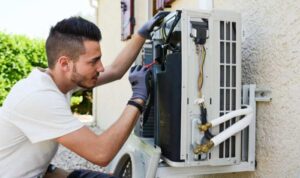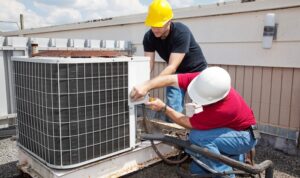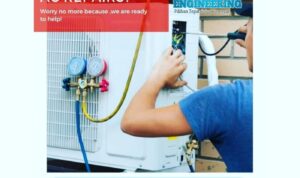Central air unit repair is a crucial aspect of maintaining a comfortable indoor environment. From common issues to troubleshooting methods, this guide covers everything you need to know to keep your central air unit in top condition.
Whether you're dealing with wear and tear or considering DIY repairs, this comprehensive overview will equip you with the knowledge to make informed decisions about your central air unit.
Common Issues with Central Air Units
Central air units can experience various common problems that may require repair. These issues can arise due to wear and tear over time, as well as a lack of proper maintenance.
1. Refrigerant Leaks
Refrigerant leaks are a common issue that can affect the performance of central air units. These leaks can lead to reduced cooling efficiency and may require professional repair to fix the leak and recharge the refrigerant.
2. Clogged Air Filters
Clogged air filters can restrict airflow and cause the central air unit to work harder to cool the space. Regularly changing or cleaning the air filters is essential to prevent this issue and ensure optimal performance.
3. Faulty Thermostat
A faulty thermostat can lead to inaccurate temperature readings and improper cooling cycles. It is important to have the thermostat checked and calibrated to ensure it is functioning correctly and accurately controlling the central air unit.
4. Electrical Issues
Electrical issues, such as faulty wiring or connections, can cause the central air unit to malfunction or not turn on at all. These issues should be addressed by a professional to avoid further damage or safety hazards.
5. Dirty Condenser Coils
Dirty condenser coils can reduce the efficiency of the central air unit and lead to higher energy consumption. Regular cleaning and maintenance of the condenser coils are necessary to ensure optimal performance and energy efficiency.
Troubleshooting Central Air Unit Problems
When your central air unit is not working properly, troubleshooting the issues can help you determine whether a repair is needed or if it's a minor problem. Regular maintenance is crucial to prevent major repairs and ensure your system operates efficiently.
Checking Thermostat Settings
Before assuming there is a problem with your central air unit, start by checking the thermostat settings. Make sure it is set to cool and the temperature is lower than the current room temperature. Also, ensure the batteries are working if your thermostat requires them.
Inspecting Air Filters
Dirty air filters can restrict airflow and cause your central air unit to work harder. Check and replace the air filters regularly, at least every 3 months, to prevent issues with your system. Clogged filters can lead to reduced efficiency and potential breakdowns.
Examining Air Ducts
Leaky or blocked air ducts can impact the performance of your central air unit. Inspect the ductwork for any obstructions or leaks that may be affecting the airflow. Sealing duct leaks and keeping them clean can improve the efficiency of your system.
Cleaning the Outdoor Unit
The outdoor unit of your central air system can accumulate dirt, debris, and vegetation, hindering its ability to function effectively. Regularly clean the outdoor unit by removing any obstructions and ensuring proper airflow for optimal performance.
Checking Refrigerant Levels
Inadequate refrigerant levels can indicate a leak in your central air unit. If you notice reduced cooling capacity or ice buildup on the refrigerant lines, it may be time to call a professional to inspect and repair any leaks. Proper refrigerant levels are essential for efficient cooling.
DIY Repair vs. Professional Repair
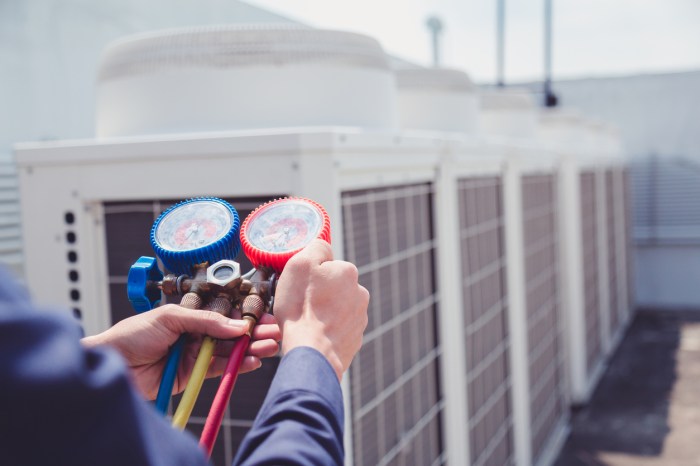
When it comes to repairing your central air unit, you may be torn between attempting a DIY fix or hiring a professional
However, they also come with the risk of causing further damage if not done correctly. On the other hand, hiring a professional ensures that the repair is done correctly and efficiently, but it can be more expensive.
Benefits and Drawbacks of DIY Repairs
- Benefits:
- Cost-effective
- Sense of accomplishment
- Drawbacks:
- Risk of causing further damage
- Time-consuming
Tools Needed for DIY Central Air Unit Repairs
- Adjustable wrench
- Multimeter
- Screwdriver set
- Fin comb
- Cleaner for coils
When to Hire a Professional
- If the repair involves electrical components
- If the unit is still under warranty
- If multiple components need to be replaced
- If you are unsure of the issue or how to fix it
Cost of Central Air Unit Repairs
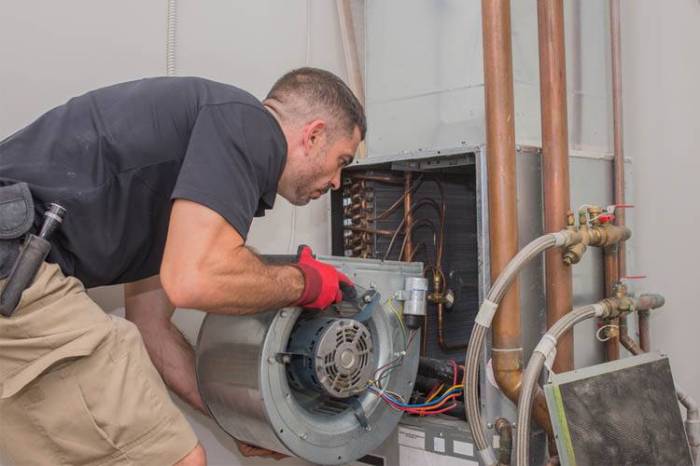
When it comes to repairing a central air unit, the cost can vary depending on several factors. Understanding what influences these costs and how to budget for them can help homeowners plan for any necessary repairs.Factors that can influence the cost of repairing a central air unit include the extent of the damage, the type of repair needed, the age and condition of the unit, the availability of replacement parts, and the location of the unit.
Breakdown of Typical Costs
- Replacing a faulty capacitor: $150-$350
- Fixing a refrigerant leak: $200-$1,500
- Repairing a faulty compressor: $1,500-$2,500
- Replacing a damaged fan motor: $200-$600
- Fixing a clogged condensate drain line: $75-$250
Tips for Budgeting
- Regular maintenance can help prevent costly repairs down the line.
- Get multiple quotes from different HVAC professionals to compare prices.
- Consider investing in a home warranty that covers HVAC repairs.
- Set aside a portion of your budget each month for unexpected repairs.
Final Thoughts
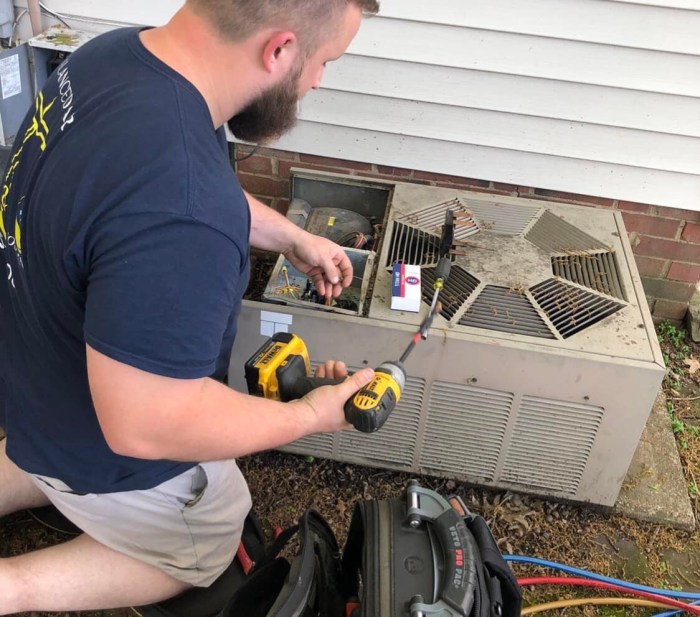
In conclusion, understanding the ins and outs of central air unit repair is key to ensuring your system operates efficiently. By following the tips and insights provided in this guide, you'll be better prepared to address any issues that may arise and maintain optimal performance for years to come.
Top FAQs
What are some common issues with central air units?
Common issues include refrigerant leaks, sensor problems, and electrical issues. Regular maintenance can help identify and address these issues promptly.
When should I consider professional repair over DIY?
Professional repair is advisable for complex issues like compressor problems or refrigerant leaks. DIY repairs are suitable for minor issues like clogged filters.
How can I budget for central air unit repairs?
Start by getting quotes from multiple repair services to compare costs. Consider factors like the age of your unit and the extent of repairs needed to create a budget.

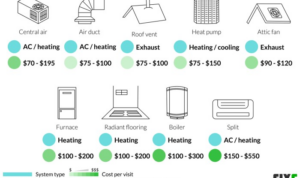
![[Free] Annual Air Conditioner Maintenance Checklist Excel Format [Free] Annual Air Conditioner Maintenance Checklist Excel Format](https://ac.viralsumsel.com/wp-content/uploads/2025/06/Annual-Maintenance-Contract-for-AC-300x178.jpg)
